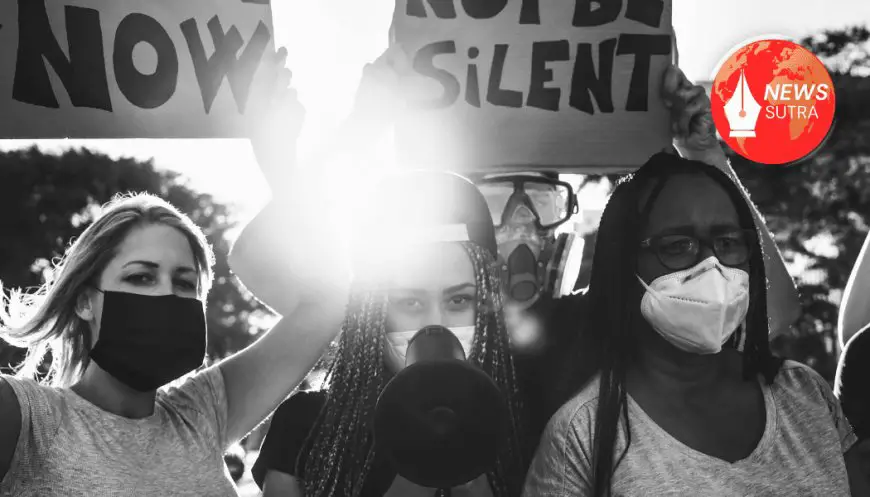Thousands to Join Global March to Gaza from Egypt on June 15: A Defiant Call for Humanitarian Justice
Thousands from across the globe will join the Global March to Gaza from Egypt on June 15, calling for urgent humanitarian access and an end to the siege.

On June 15, a mass mobilization dubbed the "Global March to Gaza" is set to begin from Egypt, uniting thousands of peace activists, aid workers, and human rights defenders from around the world. The march aims to spotlight the dire humanitarian crisis in Gaza and demand unrestricted access to humanitarian aid.
A Historic Mobilization Set to Begin at Rafah Border
Organizers and human rights groups are preparing for what is expected to be one of the largest international solidarity actions in recent years. The “Global March to Gaza,” slated for June 15, will see thousands of participants converge at Egypt’s Rafah border crossing, the only entry point into Gaza not directly controlled by Israel.
This massive effort is being spearheaded by a coalition of non-governmental organizations, religious leaders, medical professionals, and activists from more than 30 countries, all calling for an end to the siege on Gaza and immediate entry of humanitarian aid.
According to Al Jazeera, over 10,000 participants have registered, including delegations from South Africa, Malaysia, the UK, Canada, and India. Organizers emphasize that the march is peaceful and rooted in international law and human rights principles.
Why Now: Escalating Crisis in Gaza
The call to march comes amid escalating humanitarian conditions in Gaza, where weeks of intense Israeli bombardment have crippled infrastructure, left hospitals without power, and pushed over 80% of the population into food insecurity, according to the UN Office for the Coordination of Humanitarian Affairs (OCHA).
More than 30,000 people have been killed since the conflict escalated in late 2023, with entire neighborhoods reduced to rubble. Aid convoys have been routinely denied entry or delayed, while Gaza’s health system teeters on the brink of collapse.
Dr. Hanan Ashrawi, a former Palestinian Authority spokesperson and one of the march’s honorary leaders, told Middle East Eye:
“This is not just about Gaza—it is about standing against impunity and for the right of people to live with dignity. The march sends a message that the world is watching, and that silence is complicity.”
Egypt's Role and Regional Diplomacy
Egypt, which has maintained a complex relationship with both Hamas and Israel, has allowed limited access through Rafah for humanitarian coordination, but has resisted opening the floodgates amid regional security concerns.
The Egyptian government has not formally endorsed the march, but reports suggest that security forces will monitor and guide the demonstrators to ensure that the event remains peaceful. Human rights watchdogs warn, however, of potential crackdowns or last-minute restrictions.
The march comes just days after Cairo hosted a summit on Palestinian statehood, attended by UN officials and Arab League members. Analysts at the Carnegie Endowment for International Peace say this march may place additional pressure on Egypt to take a more active role in mediating humanitarian access.
Demands of the Marchers
Participants in the Global March to Gaza have outlined five core demands:
-
Immediate and unconditional opening of all crossings into Gaza for humanitarian aid and civilians.
-
Cessation of all military attacks on civilian infrastructure and adherence to international humanitarian law.
-
An international investigation into alleged war crimes by all parties involved in the conflict.
-
Full restoration of basic services in Gaza, including electricity, water, and medical supplies.
-
Support for a long-term political resolution based on self-determination and international legal frameworks.
Several leading human rights organizations, including Amnesty International, Médecins Sans Frontières (MSF), and the International Red Cross, have publicly supported the aims of the march.
Global Response and Media Coverage
International media outlets including BBC, France 24, and The Guardian are deploying correspondents to cover the march.
Social media campaigns under hashtags such as #MarchToGaza, #OpenRafah, and #LetAidIn have gained traction, with millions of impressions within the past week. Influencers, journalists, and political commentators have joined the conversation, adding pressure on governments and multilateral institutions to act.
Meanwhile, the United Nations Relief and Works Agency (UNRWA) has reiterated its call for unrestricted access to Gaza, citing the increasing threat of famine and disease in displaced communities.
Potential Risks and Challenges
Security experts have warned that the march could trigger violent confrontations, either from extremist groups or as a result of border security mishandling. Israel has not commented on the march directly but has consistently labeled mass mobilizations toward Gaza as potential “security threats.”
Nevertheless, organizers insist on the nonviolent nature of the protest, drawing parallels with past peaceful movements such as the Freedom Flotilla (2010) and the Great March of Return (2018).
Legal observers from Human Rights Watch and The International Federation for Human Rights (FIDH) will be on-site to monitor any breaches of civil liberties or violations of international law during the march.
Conclusion
The Global March to Gaza represents more than just a border protest—it is a symbol of rising global consciousness around the crisis in Palestine. As demonstrators prepare to step into one of the most contested humanitarian zones on earth, their message is clear: the world cannot look away.
Whether the march results in policy changes or merely reinforces international solidarity, it is already a defining moment in the history of global civil resistance.














